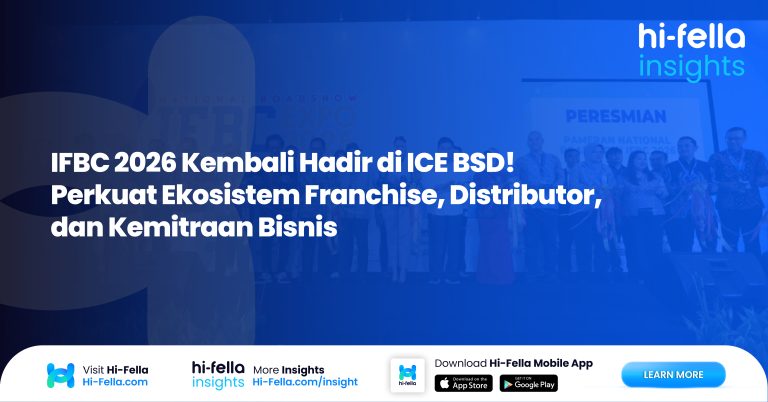Individu yang memiliki semangat wirausaha dan ingin memasuki dunia bisnis pakaian dengan modal terbatas, termasuk para penjual di platform online, akan menemukan panduan ini sangat berharga. Membangun bisnis dengan harga jual 35 ribu rupiah bukanlah hal yang sulit jika Anda mengikuti langkah-langkah berikut ini.
- Perencanaan Bisnis yang Matang
Langkah pertama adalah merumuskan rencana bisnis yang jelas dan terstruktur. Identifikasi tujuan Anda, sasaran pasar, dan produk yang akan Anda tawarkan. Riset juga pesaing-pesaing dalam segmen harga yang sama untuk mendapatkan wawasan yang lebih baik.
Membuat perencanaan bisnis yang matang adalah fondasi utama kesuksesan dalam menjalankan usaha. Pertama, Anda perlu merumuskan visi jangka panjang dan tujuan bisnis yang jelas, sehingga Anda memiliki arah yang pasti. Selanjutnya, lakukan analisis pasar yang mendalam untuk memahami siapa target pelanggan Anda, tren industri, dan kebutuhan pasar. Pelajari juga pesaing Anda untuk menentukan keunggulan kompetitif Anda. Setelah itu, susun model bisnis yang efektif dengan menentukan cara menghasilkan pendapatan, menetapkan harga yang sesuai, dan mengelola biaya dengan cermat.
Rencana pemasaran adalah langkah berikutnya, di mana Anda merancang strategi promosi bisnis Anda. Pertimbangkan penggunaan media sosial, iklan, atau pemasaran konten sesuai dengan target pasar Anda. Selanjutnya, bentuk tim yang kuat dan sesuai dengan kebutuhan bisnis Anda, dengan peran yang jelas bagi setiap anggota tim. Buat proyeksi keuangan yang realistis untuk memahami bagaimana bisnis Anda akan berkembang dari segi pendapatan, biaya, dan keuntungan.
Ingatlah untuk selalu melakukan evaluasi dan pemantauan secara berkala terhadap rencana bisnis Anda, dan bersiap untuk mengadaptasinya jika diperlukan. Buat juga rencana darurat sebagai langkah antisipasi jika bisnis menghadapi kendala. Terakhir, tetaplah komitmen untuk menjalankan rencana bisnis Anda dengan tekun, karena kesuksesan memerlukan waktu, usaha, dan kesabaran. Dengan perencanaan bisnis yang matang, Anda akan memiliki panduan yang kuat untuk mengarahkan bisnis Anda menuju kesuksesan yang berkelanjutan. - Temukan Supplier Bahan Baku Terjangkau
Suplai bahan baku dengan harga terjangkau adalah kunci dalam bisnis ini. Carilah pemasok yang menyediakan kain dan bahan berkualitas baik dengan harga yang sesuai. Hi-Fella, platform yang menghubungkan pembeli dengan penjual, adalah tempat yang tepat untuk mencari supplier bahan pakaian.
Dalam dunia bisnis, salah satu faktor kunci yang dapat memengaruhi profitabilitas adalah biaya bahan baku. Oleh karena itu, untuk menjaga margin keuntungan yang sehat, penting untuk menemukan supplier bahan baku yang terjangkau. Supplier yang tepat dapat membantu bisnis Anda menghemat uang, meningkatkan daya saing, dan menjaga kualitas produk tetap tinggi. Namun, mencari dan memilih supplier yang tepat bukanlah tugas yang mudah, dan memerlukan strategi yang cermat.
Ada beberapa strategi yang dapat Anda gunakan untuk menemukan supplier bahan baku terjangkau. Pertama, lakukan riset pasar yang mendalam untuk mengidentifikasi berbagai opsi supplier yang ada. Jangan ragu untuk berbicara dengan rekan bisnis atau bergabung dengan komunitas industri yang relevan untuk mendapatkan rekomendasi. Selain itu, jalin komunikasi yang baik dengan supplier potensial. Diskusikan persyaratan bisnis Anda secara terperinci dan tanyakan tentang fleksibilitas harga, diskon kuantitas, atau opsi pengiriman yang dapat mempengaruhi biaya.
Selain itu, pertimbangkan untuk menjajaki kesepakatan jangka panjang dengan supplier yang andal. Ini dapat membantu Anda mengamankan harga yang lebih baik dalam jangka waktu yang lebih lama. Terakhir, selalu tinjau ulang kembali persyaratan kontrak dan pertimbangkan untuk berkolaborasi dengan supplier yang memiliki reputasi baik dalam hal kualitas dan keandalan. Dengan strategi yang tepat, Anda dapat menemukan supplier bahan baku terjangkau yang akan mendukung pertumbuhan dan kesuksesan bisnis Anda. - Strategi Pemasaran Efektif
Dalam pasar yang terjangkau, strategi pemasaran menjadi sangat penting. Manfaatkan media sosial dan platform online lainnya untuk mempromosikan produk Anda. Anda dapat meningkatkan visibilitas online Anda seperti dengan mempromosikan bisnis anda dari berbagai macam platform sosial media. Hi-Fella juga dapat membantu Anda menjangkau lebih banyak pelanggan.
Dalam era digital yang terus berkembang, pemasaran efektif telah menjadi salah satu elemen kunci dalam kesuksesan bisnis. Mengapa? Karena memiliki produk atau layanan yang hebat saja tidak cukup. Anda harus dapat menjangkau audiens yang tepat dan mengkomunikasikan nilai yang Anda tawarkan dengan cara yang memikat. Oleh karena itu, menyusun strategi pemasaran yang efektif adalah langkah penting. Langkah pertama dalam strategi ini adalah memahami audiens Anda dengan baik. Siapa mereka? Apa masalah atau kebutuhan mereka? Bagaimana Anda bisa memberikan solusi yang mereka cari?
Setelah Anda memahami audiens Anda, langkah selanjutnya adalah memilih kanal pemasaran yang tepat. Ini bisa berupa media sosial, iklan online, email marketing, atau kombinasi dari berbagai metode. Saat memilih kanal, pertimbangkan di mana audiens Anda aktif dan mana yang paling sesuai dengan produk atau layanan Anda. Namun, strategi pemasaran tidak berhenti di situ. Anda perlu mengukur kinerja kampanye Anda secara teratur untuk melihat apa yang berhasil dan apa yang tidak. Ini memungkinkan Anda untuk mengoptimalkan strategi Anda seiring waktu, berfokus pada apa yang menghasilkan hasil terbaik, dan meninggalkan apa yang tidak berdaya. Pemasaran yang efektif adalah perjalanan yang terus berubah dan beradaptasi dengan perkembangan pasar dan preferensi konsumen. - Bersaing dengan Pesaing
Untuk bersaing di dalam segmen harga ini, fokuslah pada kualitas produk dan pelayanan yang unggul. Tawarkan variasi desain yang menarik dan pastikan pelanggan mendapatkan pengalaman memuaskan ketika berbelanja di toko Anda. Ikuti tren yang ada dalam bisnis tersebut dan buatlah inovasi-inovasi yang akan menarik pelanggan.
Dalam dunia bisnis yang kompetitif, kemampuan untuk bersaing dengan lawan bisnis adalah salah satu faktor penentu kesuksesan. Kunci utamanya adalah memiliki pemahaman yang mendalam tentang pasar dan pesaing Anda. Ini berarti tidak hanya mengetahui siapa pesaing Anda, tetapi juga memahami kekuatan dan kelemahan mereka. Dengan pemahaman ini, Anda dapat merancang strategi yang tepat untuk mengungguli mereka.
Strategi bersaing yang efektif mencakup beberapa elemen kunci. Pertama, fokus pada nilai tambah yang Anda tawarkan kepada pelanggan. Bagaimana produk atau layanan Anda lebih baik atau berbeda dari yang ditawarkan oleh pesaing? Kedua, perluas pemahaman Anda tentang pelanggan. Ketahui apa yang mereka cari, dan sesuaikan produk atau layanan Anda sesuai dengan kebutuhan dan preferensi mereka. Terakhir, jangan ragu untuk berinovasi. Bisnis yang terus berkembang dan berubah akan lebih mampu mengatasi persaingan dan tetap relevan dalam pasar yang dinamis. Bersaing dengan lawan bisnis memang sulit, tetapi dengan strategi yang tepat dan komitmen untuk terus berkembang, Anda dapat mencapai keunggulan yang berkelanjutan.
Dengan mengikuti panduan langkah demi langkah ini, Anda dapat memulai bisnis pakaian dengan modal terbatas dan harga jual yang terjangkau. Jangan lupa untuk mencari supplier bahan pakaian terbaik di Hi-Fella, platform yang siap membantu Anda sukses dalam bisnis ini.
Pelajari strategi lengkap memulai bisnis pakaian dengan modal minimal. Baca panduan langkah demi langkah kami untuk sukses di pasar terjangkau di Hi-fella








